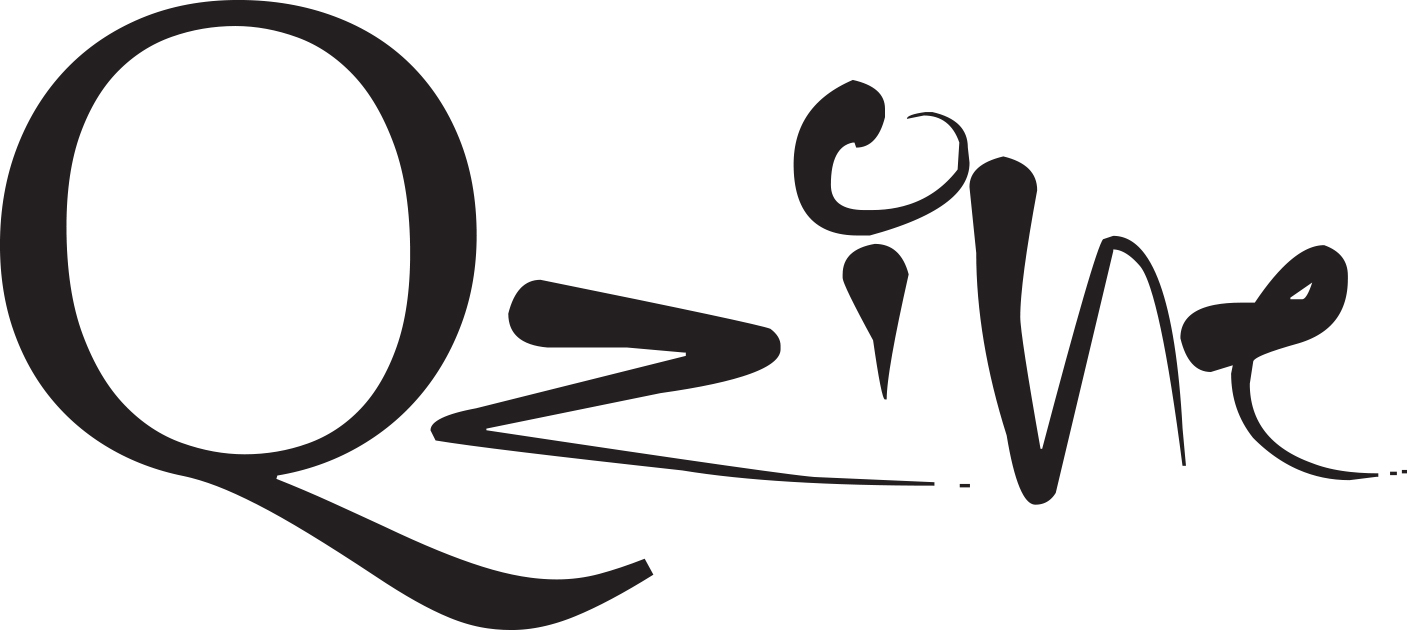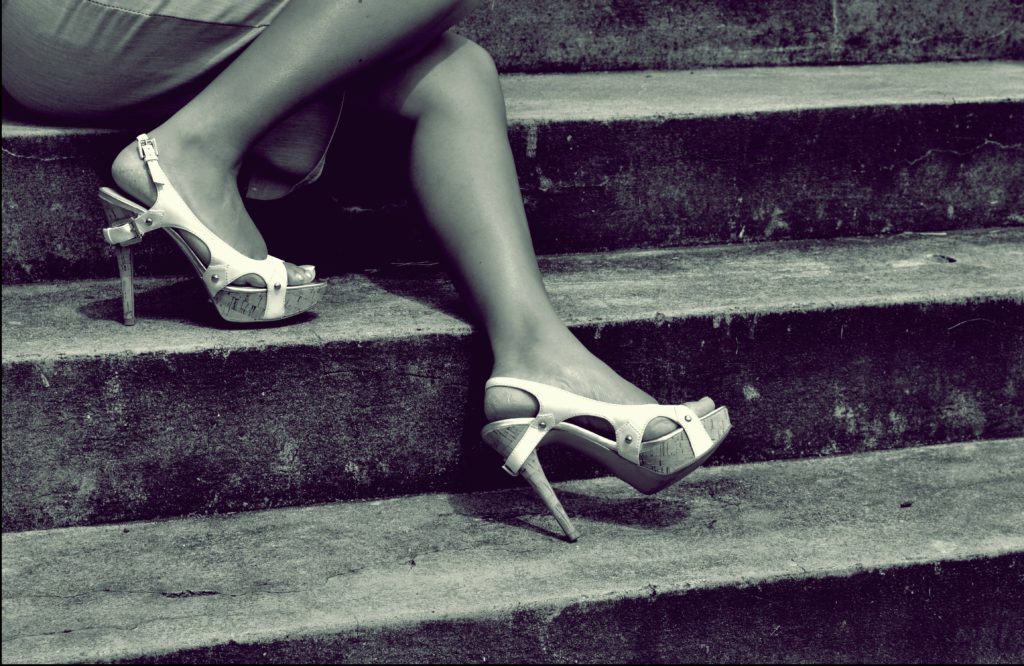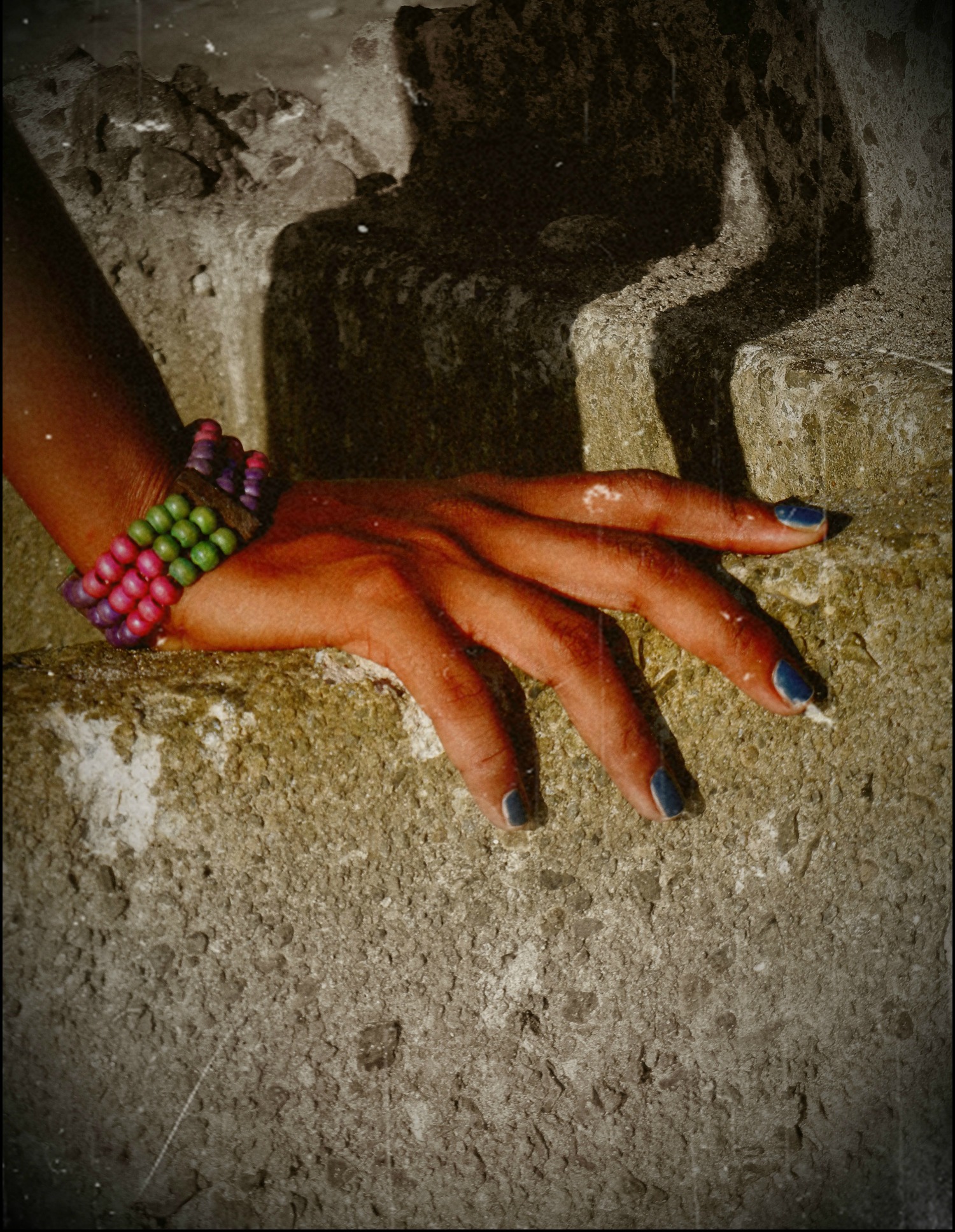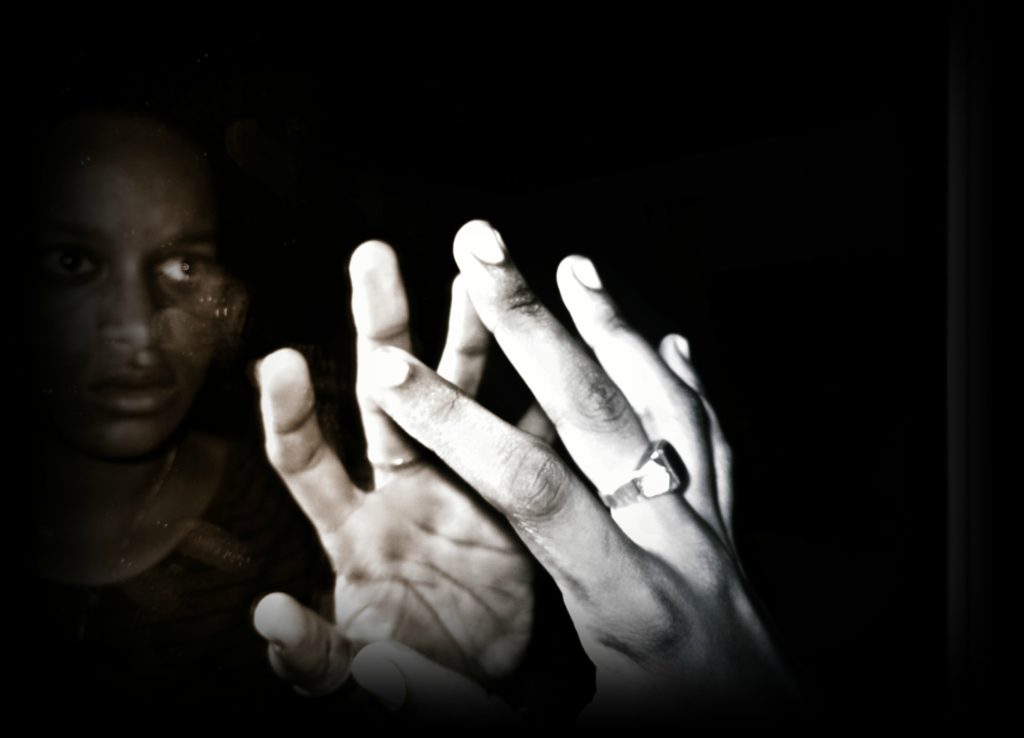On Love Songs
A Conversation with Nhojj, Singer and Songwriter from Guyana. Interview by Cases Rebelles. Photos by sHiNE
Nhojj is an out and proud Singer and Songwriter originally from Guyana but now based in the U.S. In 2009, Nhojj became the first black person to win the Out Music Awards, which he went on to win several times further afterward. His music celebrates love in all its forms and in his own words, “I believe that regardless where love shows up, love is right, love is good and love is beautiful.” Cases Rebelles sat down with him via Skype for a long conversation. This is an excerpt of the interview.
![Nhojj LIVE @ NYC Pride 2013 [Hudson River Park @ Pier 26] (Reg LR Edits)-17](https://www.q-zine.org/wp-content/uploads/2017/04/Nhojj-LIVE-@-NYC-Pride-2013-Hudson-River-Park-@-Pier-26-Reg-LR-Edits-17-1024x678.jpg)
Cases Rebelles: First, I would like to talk about the positivity of love, the positivity of love in your music. Where and how do you find the strength to share, to give so much through your music? Where does all this inspiration and love come from?
Nhojj: Wow (laughter), that’s a good question. I think it come from… I think we all have love, we all have big, huge capacity for love and as artists and creative people, what we do is that we type into that, we connect to it – I think that where my source comes from. I think there is a world of love, of, you know, an ideal. With music I get to type into that ideal and I get to share it. I think we all have access to it – I think as creative people, we are more tuned into it, (laughter). I think…
CR: I assume there are sometimes where you are filled with anger or fear, all these bad- negative emotions, how are you able to overcome these and experience love?
Nhojj: Yay, that’s a biggy. I absolutely feel (experience) fear, I feel hate, I feel anger – and I think part of my (creative) process is to acknowledge all feelings – to embrace all feelings and part of what I do is that I journal a lot. I write my feelings out in a diary, and that for me really helps in getting it off my chest. To acknowledge these feelings and the experience that kinda brings them up. I found that when I journal or when I acknowledge the feeling of anger, the feeling of fear – the acknowledgment of these feelings, I get to pass (get) through them. I get to reach a level of contentment. Sooner or later -it doesn’t always happen right away, but sooner or later, when I acknowledge all feelings, I get to a place where I can reach love.
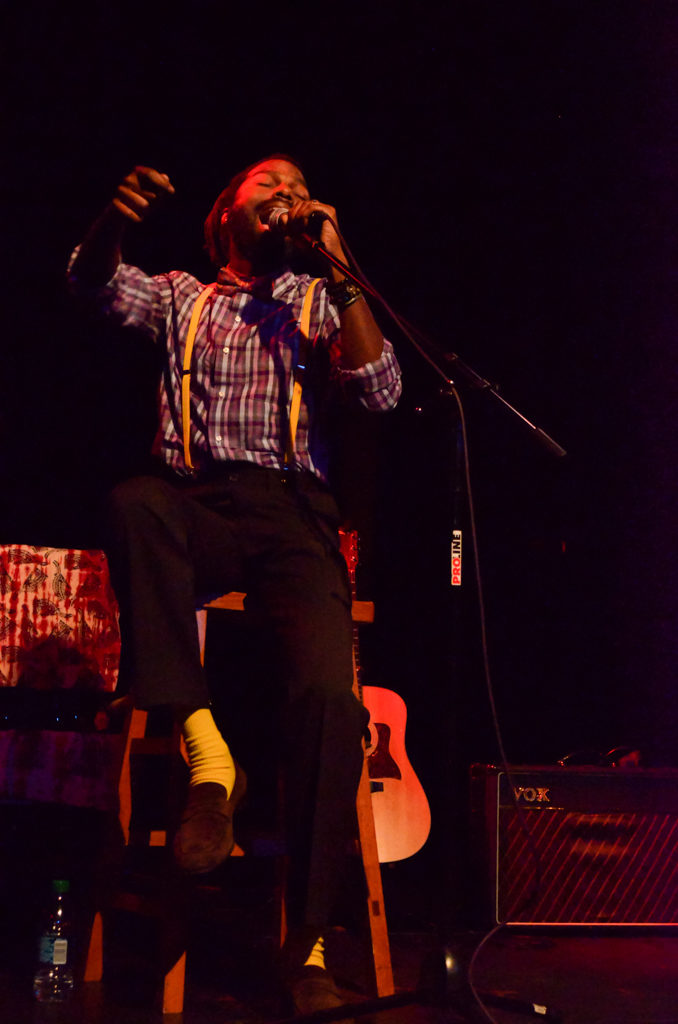
CR: I remember a beautiful text you wrote where you talked about “burying “your” head under the sand and wasting away precious years”. How was your childhood in Georgetown?
Nhojji: I grew up in Georgetown – you know Georgetown is beautiful – the weather is warm, the people are warm, for the most part. I remember we had tonne of fruit trees in our yard. That part of my life, the kind of organic nature of life there, I really liked. In terms of my sexuality, that part was just nonexistent because I really never saw anyone like me. It’s different now – when I was there in June 2013, we went on the radio and we did interviews. SASOD had done a great job at raising the visibility of LGBT people. However when I was growing up, there was none of that; I felt completely isolated and confused. I knew I was different but I didn’t really know what that meant, so it was very confusing for me – and painful too. I didn’t play sport, I was always soft so I got teased a lot and called all kind of names. (I’m) Thankful that was all it was – I didn’t get beat up but emotionally, yay, it was tough.
CR: Can you tell me the importance of religious and faith in your art? How did your faith evolve through the years considering that your father was a Minister?. As a child what was the place of religious and faith and what is their place today?
Nhojj: So that was… So I grew up in a church –my process, my journey it wasn’t easy for me. There were a lot of confusion growing up because I was hearing things at church that didn’t resonate with me, with who I was. I was hearing that being gay is wrong, you know – that you will go to hell, you have to repent – you know all these stories. So for me growing up I have to turn my back on religious, ignore all of it. And then, gradually, overtime, I started finding new ways of spirituality. I stumbled across some books on meditation, yoga and just those types of concepts where we are all one, we are all connected to the universe, we all have our unique path to follow. That type of spirituality connected with who I was – that was a way for me to reconnect with God, to kind of recapture my spirituality. But it took a lot time- I still read a lot, I meditate. That nourishes the spiritual aspect of my life.
CR: Let’s discuss your musical influences. Growing up, you were into Gospel. Did you listen to Caribbean music and what are you listening these days?
Nhojj: Growing up I heard lot of Socca, Bob Marley, Reggae, Marcel Mantaneau. I loved that music, you know, it’s great. Even now I still listen to Socca and Reggae. I also listen to Gospel and church music – I remember I had this record, my parents spent sometime in the U.S studying before moving back to Guyana. While they were here, they ended up in a church. They had this one Gospel record, which I found when we moved back in Guyana and was a little bit older. I would play it all the time; it was just, you know – just like the church choir, like they had just made this record. I always loved the energy and the passion of Gospel music. My parents, not soo much, but I always loved it.
What I listen to now – I listen to a variety of things. The artist I’m in love right now, and I’m going to mess up her name – is Laura Mvula. I loved her. I always loved India Arie and Sade, and Cassandra Wilson. I’m a huge, huge, Cassandra Wilson fan.
CR: Your new album just came out. Can you tell me a little more about it? It covers love songs and came out on Valentine Day. How did you feel about the album?
Nhojj: Yay, it’s been kinda of the biggest project I worked on. We had a lot of incredible musicians on, a lot of accomplished musicians – and, so yes. It was a lot of work, but I felt it was an important album to make, an important project for me because – I don’t hear songs, love songs or any other type of songs that have the same gender and I would love to hear more songs like that. I think, I always believed that if there is something that I want to see or hear in the world, but I don’t see or hear in the world, I get to create it and place it into the world. So that is what this project was about – it was a way of using music to say that our love is beautiful, our love is poetic, our love is sexy, our love is rich, our love is everything that we could imagine it to be – and to just use music as another way of saying this, of affirming who we are, and the way we love and who we love.
CR: Since you began, how have you evolved in terms of your music, how you write – what are doing differently? Are you writing different, playing differently?
Nhojj: Yay – it’s all like a growing, learning process for me. Let’s see, how to articulate that? It feels – especially playing and performing – I think that because I’m singing experiences that are really closer to my heart, experiences that I really know of – especially in a song like he heals me, or he and him, or bromance. I think it comes from a deeper place within me. For me it’s very liberating, very freeing. That’s what I’m reaching for, I’m reaching for more honesty, even more freedom, even more clarity – and exploring different ways of expressing myself, expressing our reality here on earth.
CR: How does it feels to receive an award for your musical contributions?
Nhojj: Personally, it’s a nice affirmation, it’s good to hear from my peers that they respect the work I’m doing, that they respect the music I’m creating. It’s really encouraging. You know, creating things is sometimes scary – because I never know what the reaction will be, I always hope to that people like what I do, but I’m never really sure. So to get awards is really encouraging, it encourages me to continue on. And I think for others, for younger musicians, I think it is inspiring for them to know that we can be honored for setting out, for creating work that is honest and true to our experiences. I think that’s important – I think that artists are really important in changing people perceptions. I think that the political activity is vital, because that changes the laws, makes our lives legal in a way – it provides the framework. But it’s the artists, the people who get married, who live together, they add the coloring, they give the details to the framework – they give it life, they it give a meaning. And I think that’s important.
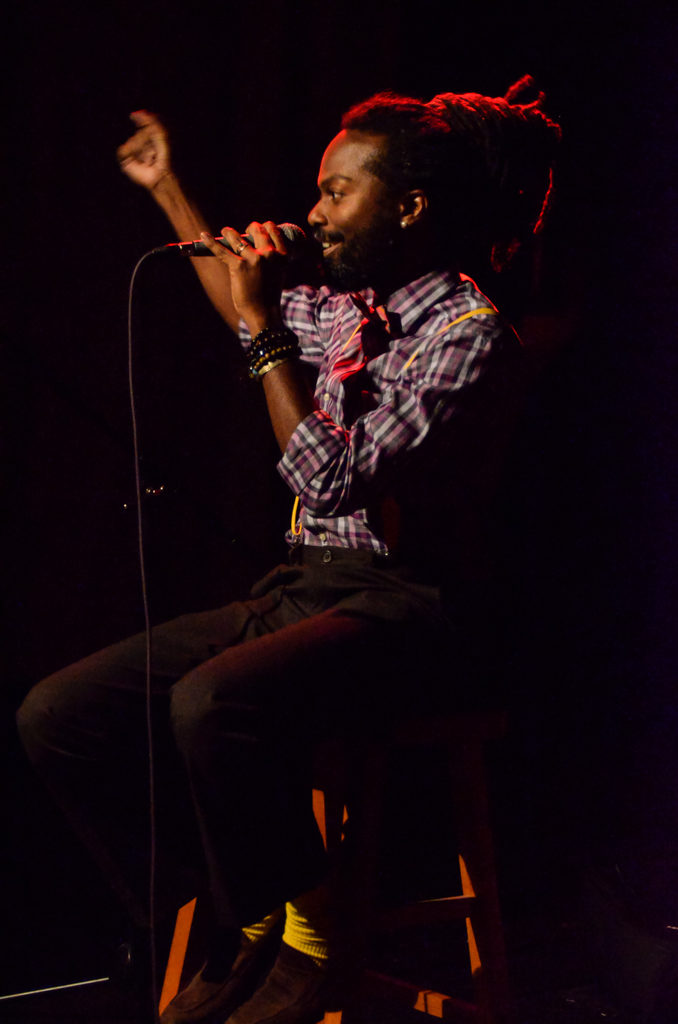
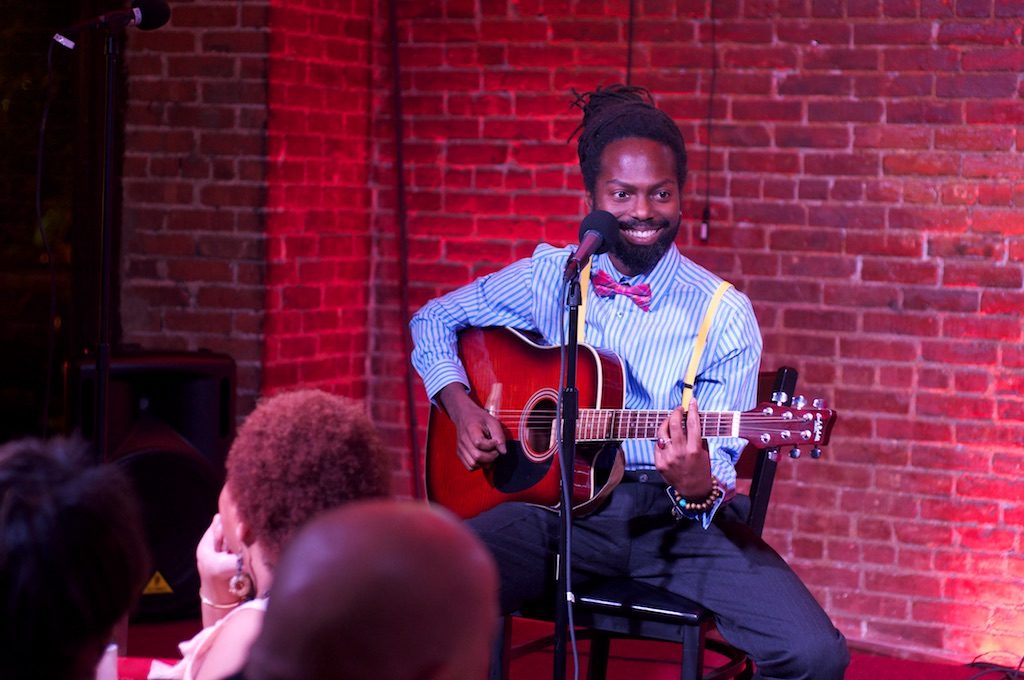
![Nhojj LIVE @ NYC Pride 2013 [Hudson River Park @ Pier 26] (Reg LR Edits)-32](https://www.q-zine.org/wp-content/uploads/2017/04/Nhojj-LIVE-@-NYC-Pride-2013-Hudson-River-Park-@-Pier-26-Reg-LR-Edits-32-678x1024.jpg)
